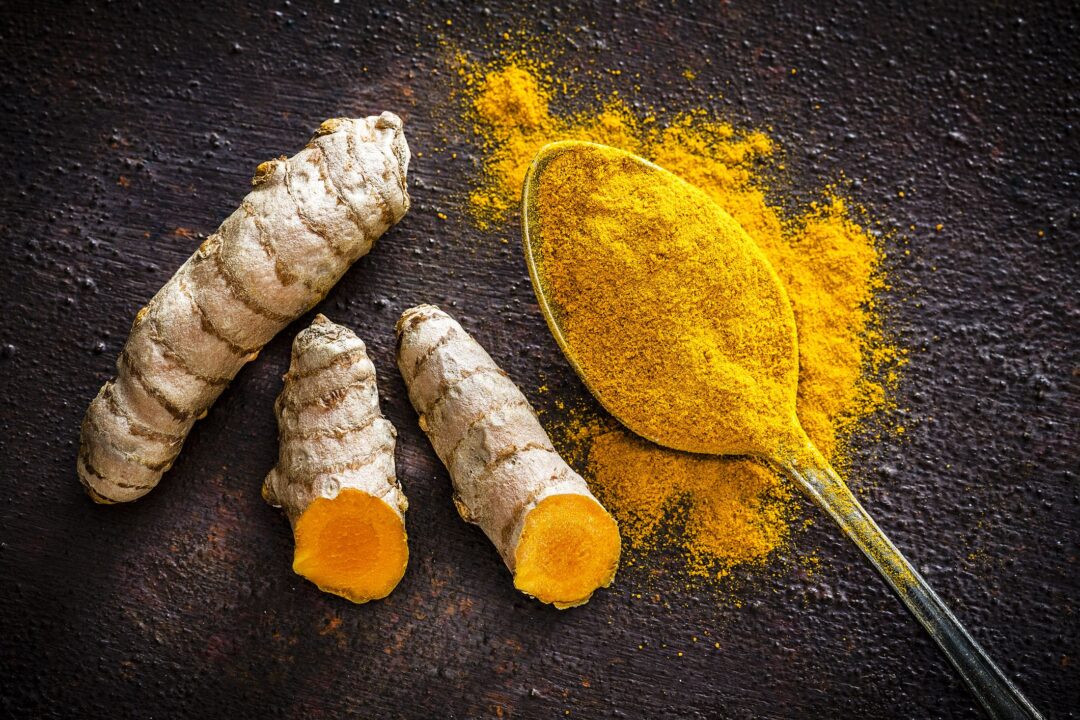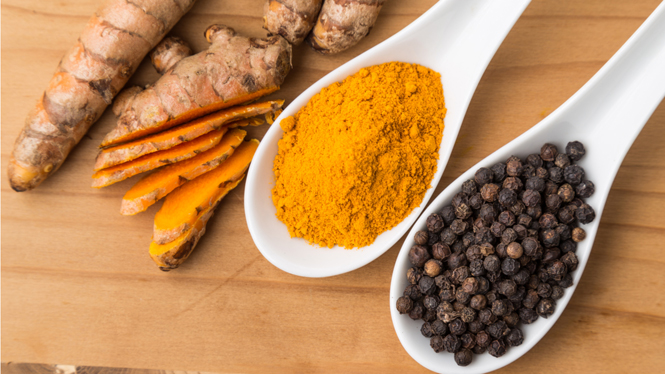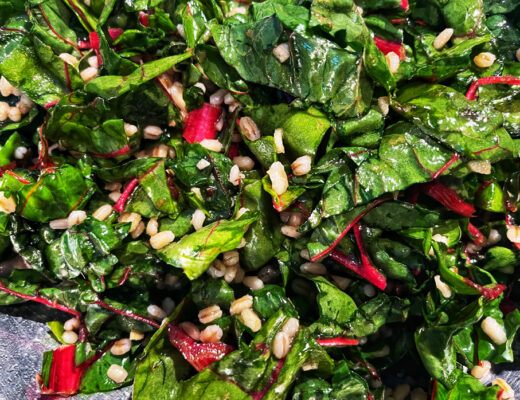Over the past year, while concentrating on taking care of my cancer diagnosis and our health in general, I’ve shifted my diet dramatically and learned a lot along the way.
One of the things that I’ve incorporated into my life daily is Turmeric. Here’s a few of the reasons…
In recent years, more than five thousand articles have been published in the medical literature about curcumin, the pigment in the Indian spice Turmeric that gives curry powder its characteristic golden color. Curcumin was first isolated more than a century ago, yet out of the thousands of experiments, only a few in the twentieth century were clinical studies involving actual human participants. Since the turn of the century, however, more than 50 clinical trials have tested curcumin against a variety of diseases, and dozens of more studies are on the way.
Since 1987, the National Cancer Institute has tested more than a thousand different compounds for chemo-preventiveness, or cancer-preventing, activity. Only a few dozen have made it to clinical trials, and curcumin, turmeric’s bright-yellow pigment, is among the most promising.
Chemopreventive agents can be classified into different subgroups based on which stage of cancer development they help to fight: Carcinogen blockers and antioxidants help prevent the initial triggering DNA mutation, and antiproliferatives work by keeping tumors from growing and spreading. Curcumin is special in that it appears to belong to all three groups, meaning it may potentially help prevent and/or arrest cancer cell growth.
The anticancer effects of curcumin extend beyond its ability to potentially prevent DNA mutations. It also appears to help regulate programmed cell death. Our cells are preprogrammed to die naturally to make way for fresh cells through a process known as apoptosis. In a sense, our body is rebuilding itself every few months with the building materials we provide it through our diet. Some cells, however, overstay their welcome—namely, cancer cells. By somehow disabling their own suicide mechanism, they don’t die when they’re supposed to. Because they continue to thrive and divide, cancer cells can eventually form tumors and potentially spread throughout the body.
So how does curcumin affect this process? It appears to have the ability to reprogram the self-destructing mechanism back into cancer cells. All cells contain so-called death receptors that trigger the self-destruction sequence, but cancer cells can disable their own death receptors. Curcumin, however, appears able to reactivate them. Curcumin can also kill cancer cells directly by activating “execution enzymes” called caspases inside cancer cells that destroy them from within by chopping up their proteins.
Unlike most chemotherapy drugs, against which cancer cells can develop resistance over time, curcumin affects several mechanisms of cell death simultaneously, making it potentially harder for cancer cells to avoid destruction. For reasons not yet fully understood, curcumin seems to leave noncancerous cells alone.
Curcumin may also play a role in preventing or treating lung disease, brain disease, and a variety of cancers, including multiple myeloma and cancers of the prostate, breast, brain, blood, colon, kidney, liver, pancreas, and skin, and may also help speed recovery after surgery and effectively treat rheumatoid arthritis better than the leading drug of choice.
It also may be effective in treating osteoarthritis and other inflammatory conditions, such as lupus and inflammatory bowel disease.
With few downsides at adding turmeric to your daily meals coupled with the myriad potential health benefits, I’d suggest trying to find ways to incorporate turmeric into your daily diet. I do it by adding a teaspoon in my daily smoothie and then adding a pinch of black pepper to add more bioavailability.
Black pepper helps your body absorb more curcumin, the active ingredient in turmeric that’s known for its health benefits. Research has shown that Piperine, the main active ingredient in pepper, may also reduce inflammation associated with chronic diseases like asthma, arthritis, chronic gastritis, and Alzheimer’s.
Piperine helps your body absorb more curcumin. A study published in Planta Medica found that pairing 20 milligrams (mg) of piperine with 2 grams (g) of curcumin increased the amount of curcumin that could be absorbed by the body (a concept known as bioavailability) by 2,000 percent.
This little piece of information on Turmeric is only one of the many many fascinating things I’ve learned on our plant based adventure.







No Comments